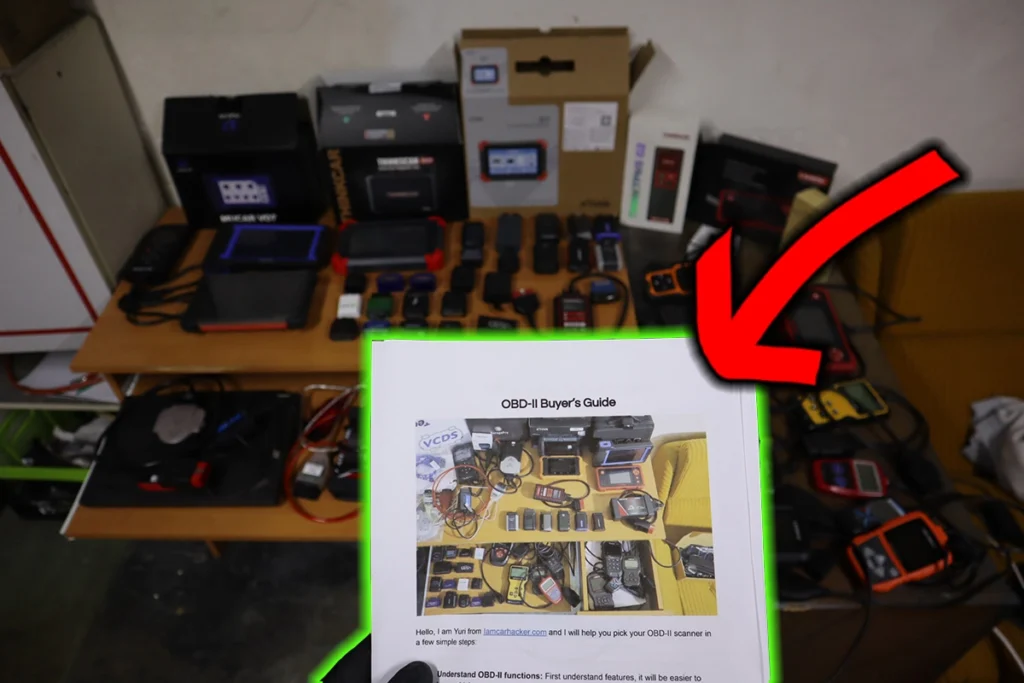The OBD2 code P0560 is triggered when there is an issue with the vehicle’s electrical system, specifically relating to the system voltage. This code indicates that the powertrain control module (PCM) has detected an abnormality in the vehicle’s electrical system’s voltage level, either too high or too low, compared to the expected range.
Such voltage irregularities can lead to a range of performance issues, including poor idling, stalling, and erratic operation of electrical components.
P0560 quick overview
| Meaning | P0560: System Voltage Malfunction |
| Is it serious? | Yes, as it affects the vehicle’s electrical system, which is critical for the operation of many components. |
| Possible causes | – Faulty alternator or charging system – Bad battery – Poor electrical connections or corroded wiring – Faulty voltage regulator (if separate from the alternator) – Issues with the vehicle’s main fuse box or relays |
| How to diagnose? | Check the battery and charging system: Ensure the battery is in good condition and that the alternator is providing the correct voltage. Inspect wiring and connections: Look for any signs of corrosion, damage, or loose connections. Evaluate the alternator and voltage regulator: Check for signs of failure or malfunction. Examine the fuse box and relays: Look for any signs of damage or poor connections that could affect voltage distribution. Consult technical service bulletins (TSBs): For known electrical issues related to the vehicle model. |
P0560 Meaning
Imagine your car’s electrical system as the body’s circulatory system, with the battery acting like the heart. The P0560 code is like a doctor telling you there’s something off with your blood pressure—it’s either too high or too low.
Just as blood pressure issues can affect your overall health, voltage problems in your car can lead to all sorts of trouble, from the engine stalling to the lights dimming. It might be a sign that the alternator, which charges the battery, isn’t working right, or there could be a bad connection somewhere in the electrical wiring, acting like a kink in the arteries.
Free PDF: How to choose OBD2 scanner

I’ve made you a free PDF to choose the OBD2 scanner in 5 minutes.
✅ Which OBD2 scanner is best?
✅ Which type should you get (DIY, Pro, Hobby)
✅ What is the best scanner for the exact brand/feature (e.g best for BMW)
✅ How to get a Bi-Directional tool for as cheap as $40
✅ Discount coupons for scanners
PDF is 100% free and it is designed to help you pick a scanner in less than a few minutes! Not a boring 50-page guide.
Just tell me where to send it.
How to fix P0560 – learn from mechanics
I looked into P0560 service cases at iatn.com website where in the private forums the mechanics seek advice from other mechanics. I looked up a bunch of cases to help you decide how to fix your issue and see what would a real mechanic do to solve it.
Case #1: Cadillac
Vehicle Information 1997 Cadillac Catera 3.0L
Issue + Repair History
- P0560 code indicating a voltage problem and poor idle
- Overheating at idle, cooling fan activates at 237 degrees Fahrenheit
- Car runs normally but idles poorly at 630 to 645 RPM when warm
Other OBD2 Codes + Test Results
- P0560: System voltage problem
Mechanic Suggestions
- Check charging system to ensure voltage is within the proper range (9 to 16 volts)
- Verify PCM power for proper voltage and inspect ground wires for cleanliness and tightness
- Consider checking the temperature sender for the gauge as it may be defective, referring to TSB for details on the replacement part
- Investigate the possibility of a failed alternator causing the voltage issue, as well as the potential for a failed diode in the alternator
- Examine the regulator on the back of the alternator for any issues
Final Fix
- Replacement of the alternator due to intermittent internal problems resolved the low idle and cooling fan issues.
Case #2: Kia
Vehicle Information 2000 Kia Sephia LS 1.8L
Issue + Repair History
- Car stalls randomly with no discernible pattern, starts normally after each stall
- Experienced power loss resembling fuel delivery issues during test drive
- Installed fuel pressure gauge and observed pressure drop to 51 PSI before stall
- MIL sometimes illuminates with consistent code P0560 indicating a system voltage issue
- Replaced fuel pump, fuel pump relay, main relay, and alternator
Other OBD2 Codes + Test Results
- P0560: System voltage
Mechanic Suggestions
- Known issue with the under-hood fuse box shorting out, recommended replacement
- Assistance offered via email for additional information
- No further suggestions provided due to exhaustive attempts at resolving the issue
Final Fix
- Replacement of the main fuse box resolved the intermittent stalling issue, with additional discovery of a poor connection caused by a scotch lock in the wiring underneath the fuse box.
Case #3: Hyundai
Vehicle Information 2002 Hyundai Sonata 2.4L
Issue + Repair History
- Check engine light on with code P0560 indicating battery backup failure
- Alternator overcharging between 14.90v and 15.20v
- Replaced alternator and PCM, issue persisted
- Found low voltage (2.1v) at the back-up power supply to the PCM
- Discovered poor connection in wiring at the fuse box, leading to voltage drop
- Replaced fuse box to resolve issue
Other OBD2 Codes + Test Results
- P0560: Battery back up failure
Mechanic Suggestions
- Check TSB “00-36-013” for similar issues (not found in Alldata or Mitchell)
- Verify battery and alternator voltage at the battery and alternator terminals
- Voltage drop check grounds and positive side for resistance
- Inspect battery for proper functioning as it is the natural load for the alternator
- Investigate wiring issues, particularly the engine compartment junction block
- Consider cleaning connectors at the ECM and junction block for potential issues
Final Fix
- Replacement of the fuse box resolved the intermittent stalling issue, with additional discovery of a poor connection in the wiring underneath the fuse box, causing voltage drop and overcharging by the alternator.
How to diagnose P0560
I made you an overview of solving this DTC, based on all the advice that was suggested by certified mechanics to address this issue in previously mentioned service cases.
| Diagnostic Step | Brief Explanation |
|---|---|
| Check the battery and charging system | Verify the battery’s health and the alternator’s output. |
| Inspect wiring and connections | Look for corrosion, damage, or loose connections in the electrical system. |
| Evaluate the alternator and voltage regulator | Determine if these components are functioning properly and delivering the correct voltage. |
| Examine the fuse box and relays | Check for damage or poor connections that could lead to voltage issues. |
| Consult technical service bulletins (TSBs) | Identify any known electrical system issues specific to the vehicle model. |
In the service cases provided—ranging from a 1997 Cadillac Catera through a 2000 Kia Sephia to a 2002 Hyundai Sonata—the common thread in resolving P0560 involved addressing components of the electrical system, like the alternator, fuse box, and connections.
The Cadillac’s issue was resolved by replacing the alternator, the Kia’s stalling was fixed with a new main fuse box, and the Hyundai’s battery backup failure was corrected by replacing the fuse box and repairing poor connections. These examples underscore the critical nature of a vehicle’s electrical system and the need for meticulous inspection and repair of components to ensure proper voltage regulation and system functionality.
Free PDF: How to choose OBD2 scanner

I’ve made you a free PDF to choose the OBD2 scanner in 5 minutes.
✅ Which OBD2 scanner is best?
✅ Which type should you get (DIY, Pro, Hobby)
✅ What is the best scanner for the exact brand/feature (e.g best for BMW)
✅ How to get a Bi-Directional tool for as cheap as $40
✅ Discount coupons for scanners
PDF is 100% free and it is designed to help you pick a scanner in less than a few minutes! Not a boring 50-page guide.
Just tell me where to send it.

Hi, I am Juraj “Yuri” Lukacko. I got frustrated by unhelpful and scammy mechanics, so I decided to learn everything about car diagnostics myself. I test dozens of new car diagnostic tools every month along with learning new strategies to fix and customize cars. About Juraj Lukacko (Yuri)